Chu Fuk-ling and Jack Zhu vigorously swung their paddles, and the ball swiftly crossed the net. They secured third place in the men's doubles at the Hong Kong round of the 2024 Pickleball World Championships in December.
“Pickleball has evolved in terms of speed and technical variety in recent years, and players now not only master the standard forehand and backhand shots but also frequently employ techniques such as drop shots, which are used to surprise opponents,” said Ho King-choi, a coach with the Pickleball Association of Hong Kong, China.
Racket sports, such as pickleball and padel, are gaining popularity among people of all ages, leading to an increase in various programmes and clubs aimed at promoting these emerging sports in Hong Kong. However, when it comes to venue allocation, pickleball benefits from government support, which provides more accessible public venues, while padel does not.
Pickleball has been around since 1965, but it has picked up in popularity over the last few years. A bit like a combination of tennis and badminton, two or four players use a smooth-faced paddle to hit a hollow plastic ball over an 86-centimetre-high net until someone wins.
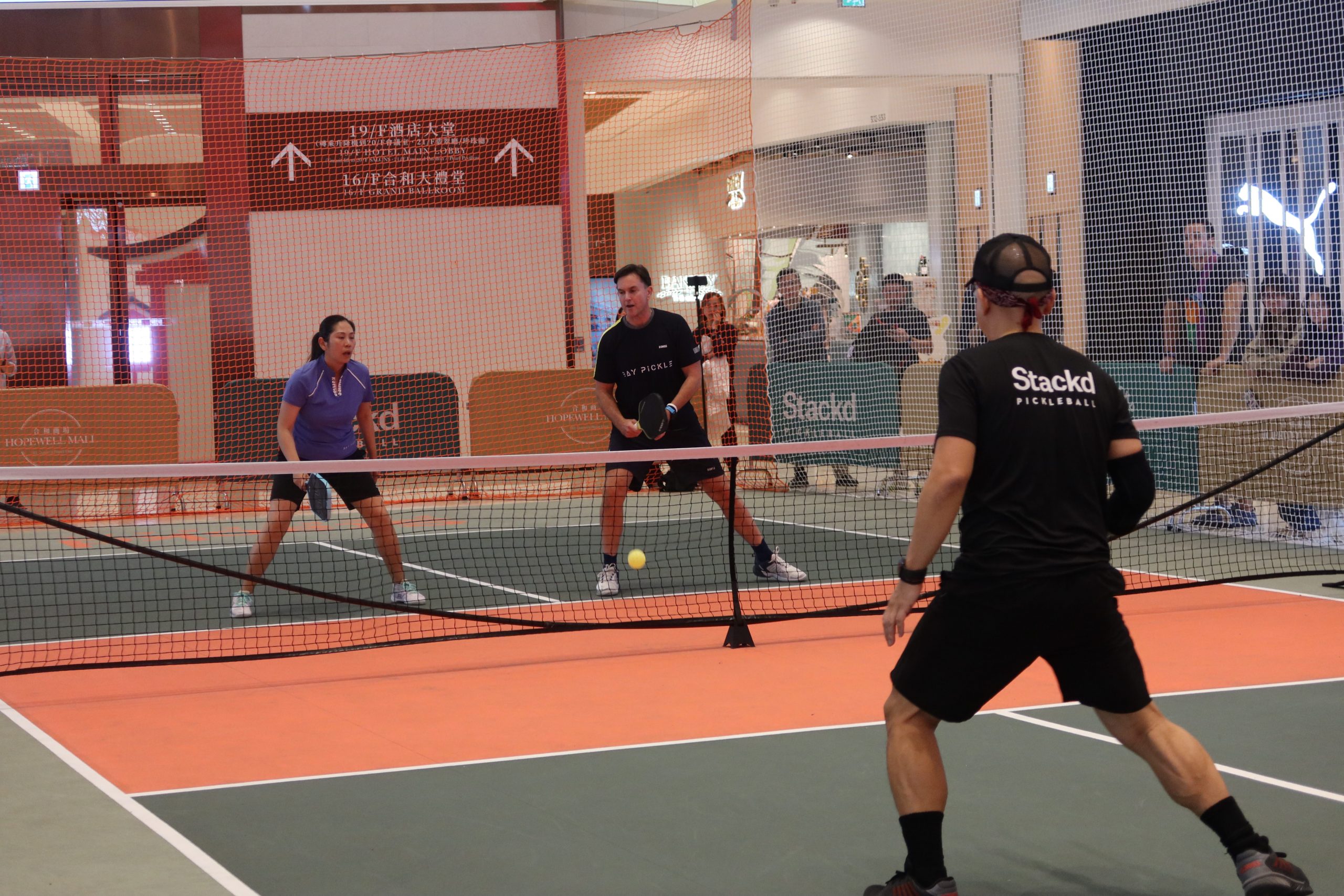
In the US, pickleball is the fastest-growing sport, with more than one million children playing and has the largest participation rate from those aged 25 to 34, according to the Sports and Fitness Industry Association report in 2024.
Hong Kong has more than 12 public venues for playing pickleball, and the city ranked among the top 11 in regional search popularity for pickleball, according to Google Trends.
Joanna Hiew, a pickleball player, was watching the finals of a pickleball tournament and said anyone can participate in the competition as long as they form a team.
“The tournament of pickleball is usually flexible, with the team of the match divided into two groups, A and B,” Hiew said. “ Group A is better suited for higher-level players, which means more difficult, and group B means less difficult.”
Hiew used to be a tennis player before she switched to pickleball a year ago. “I think this sport is a lot of fun for me because it is easy to engage with, whether learning the rules or playing casually for enjoyment,” she said.
“Meanwhile, the smaller court of pickleball ensures that there's a lot of socialising amongst players,” Hiew added.
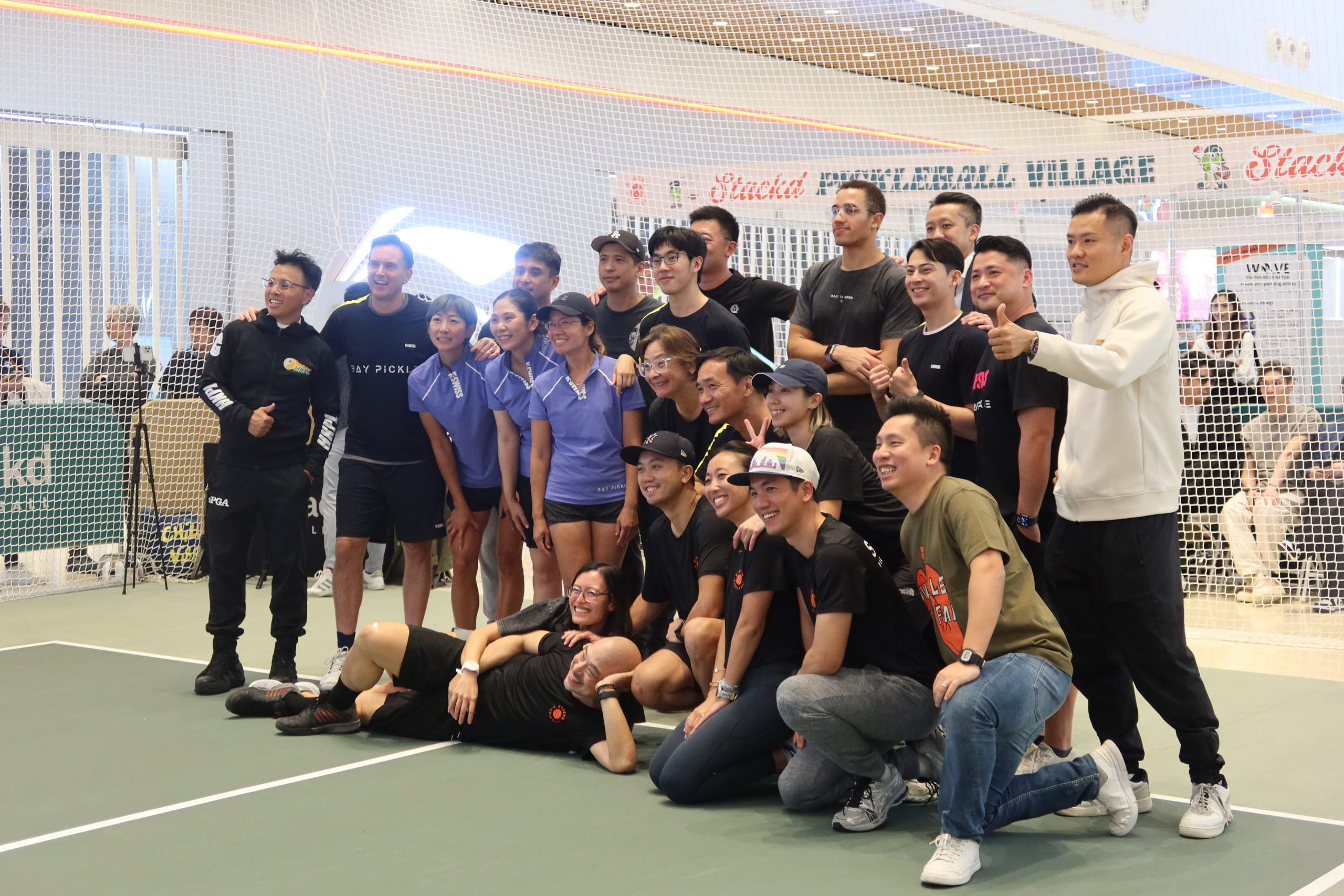
Ho, who retired recently, joined the pickleball coaching training program offered by the Pickleball Association in 2018 at a friend's suggestion. He teaches pickleball part-time in community classes and school activities while also managing promotional and administrative tasks for the association.
Ho said that since 2017, the association has trained more than 500 pickleball coaches.
“We led young players between 15 and 18 years old to represent Hong Kong in competitions with places like Macau and Shenzhen,” Ho said.
The association also hosts competitions regularly for different groups, including the Women's Cup, Youth Cup, and Rookie Tournaments. “We are hoping to provide more opportunities for learning and practice from the basics and nurturing athletic talent,” Ho said.
Community pickleball classes are offered through a community engagement program, which is a collaboration between the association and the Hong Kong Elite Athletes Association. This initiative encourages retirees, the elderly and families to participate in sports activities.
Pickleball was listed in the EACT Jockey Club Active School Programme in 2021 to help primary school students learn sports skills and promote their physical health development by providing professional coaches and teachers. The programme continues to expand, with 403 primary and secondary schools participating.
“The number of participants in the Active School Programme is steadily increasing, and the availability of courses still does not meet the demand,” said Ho. “New enthusiasts are joining faster than new courses can be offered.”
Both private clubs and public facilities offer viable venues for participants.
The Leisure and Cultural Services Department launched a trial scheme in January 2025 to open up seven non-fee-charging outdoor badminton courts for pickleball activities, according to the LCSD announcement.
“In the 2025-2026 fiscal year, we are planning to hold approximately 100 promotional activities for emerging sports in the community, including dodgeball, pickleball, and bossaball,” said Chan Wing-ho, an assistant information officer from the LCSD.
Chu, an intermediate-advanced level pickleball player, prefers to play at the venues provided by the LCSD. He uses the outdoor hard court of the LCSD and brings his crepe tape to draw the pickleball court to play on.
"It is an affordable choice for me, and I can book non-peak hours in these specific stadiums to play pickleball," he said.
The normal hourly rate for an LCSD badminton court for pickleball is HK$59 during peak hours and HK$51 for non-peak hours, according to the LCSD announcement.
Booking a private pickleball court for an hour in GoPark Sports in Sai Sha costs HK$170 during peak hours and HK$100 for non-peak hours.
“But people choose private clubs over public courts because clubs might have better pickleball courts and air conditioning, with more flexible time slots, which do not require scrambling compared to booking government courts,” Ho said.
“Only six out of 18 districts had venues available for rent previously. Starting this year, 12 districts will have venues available for pickleball during non-peak hours, including outdoor courts,” Ho said.
Padel, another racket sport that is gaining more attention, has not been as fortunate as pickleball.
At present, there are no public padel courts in Hong Kong. Some private clubs, such as PADEL+, have started to provide facilities for individuals interested in training and organizing tournaments to meet the demand.
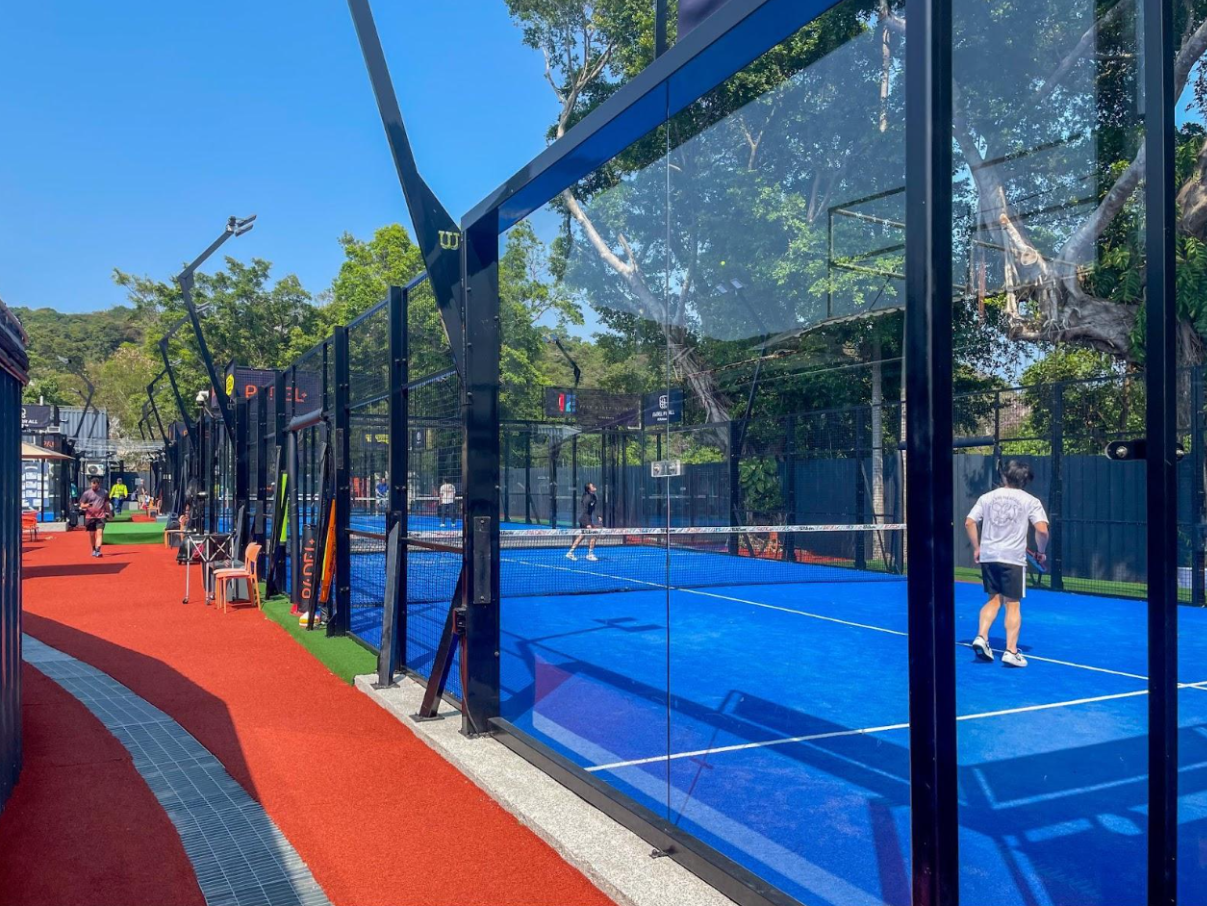
Sebastian Ortega, 38, the general manager of PADEL+, the first padel club in Hong Kong, learned about padel in Europe during the pandemic and saw its potential for development in Hong Kong.
"So in 2023, I cooperated with the founder of PADEL+ and introduced padel to Hong Kong in September,” he said.
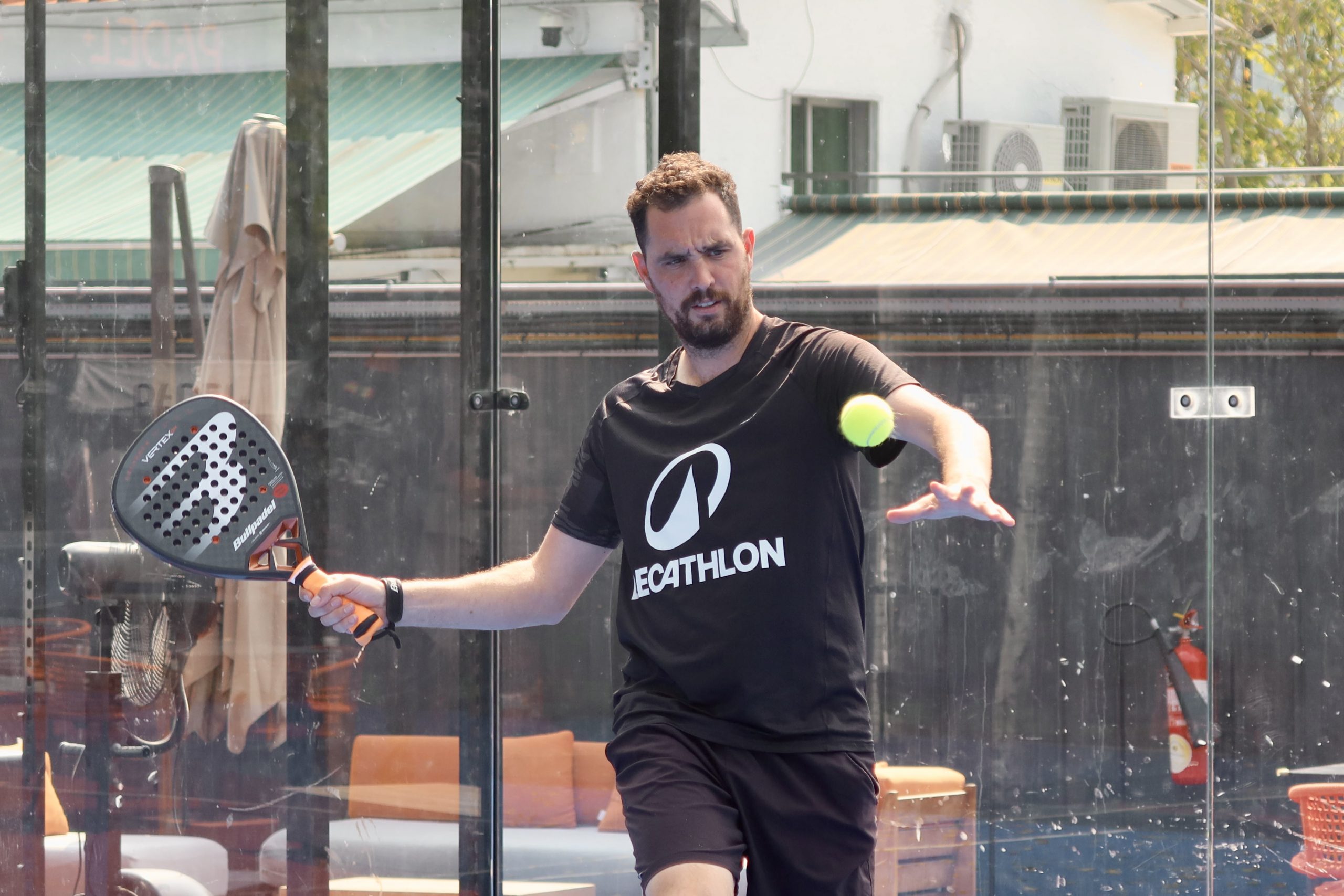
PADEL+ organises competitions, including the Padel Pro Series for pros and amateurs, with sixteen teams joining once a month. The Padel Pro Series Masters is held annually in December for the best teams, while the Hong Kong Open is a city-wide competition held once a year.
“Players are coming from different countries, such as France and Japan, to compete against players in Hong Kong,” Ortega said.
PADEL+ now has around 500 to 600 active members. “Most of the participants are between 30 and 60 years old, but there are still people in their twenties,” Ortega said.
Padel is easier to start compared to the rest of racket sports. Its smaller, enclosed court eases movement and keeps errant shots in play. The solid rackets and slower-moving balls are forgiving.

“It encourages more social interaction among people while playing,” Ortega said. “I think now for the new society, everyone wants everything quick, so padel is good for that,” he added.
Ortega, who used to be a tennis coach, had his tennis students follow him and switch to participating in padel.
“I would say it is like two sports at once, like tennis and squash. It is pretty interesting and makes me relax,” said Llena Mark Christopher Fuertes, 20, a beginner in padel.

But the training cost of padel poses a significant barrier to its being widely spread among the general population in Hong Kong.
A one-on-one private session at PADEL+, which lasts about an hour to one-and-a-half hours, costs from HK$900. One-on-four costs HK$350 per person.
Besides PADEL+, Go Park Sports and the Discovery Bay Recreation Club are the only two venues for playing padel. The cost of booking a venue typically ranges from HK$180 to HK$270, according to the Go Park Sports official.
“In Europe, they are replacing tennis courts with padel courts because you can set two parallel padel courts on one tennis court, and you can have eight people playing padel tennis instead of having two or four,” said Ortega.
“Given that case, I think Hong Kong will be like this in a few years because, for both clubs and the government, it is a cost-effective way from an economic point of view,” he added.
《The Young Reporter》
The Young Reporter (TYR) started as a newspaper in 1969. Today, it is published across multiple media platforms and updated constantly to bring the latest news and analyses to its readers.
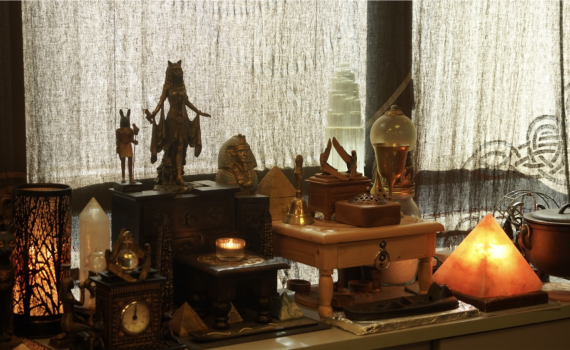
Divination or scam? The rising popularity of tarot cards reading
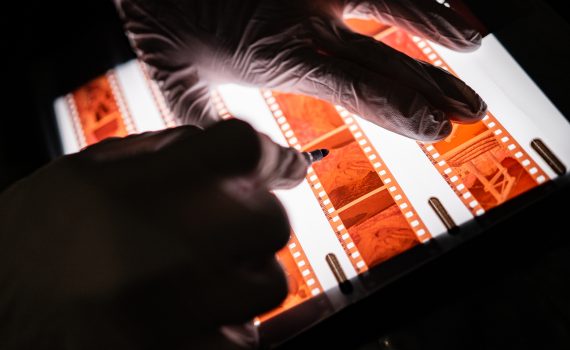
Snap Back in Time: The Film Photography Craze Sweeping Hong Kong




Comments